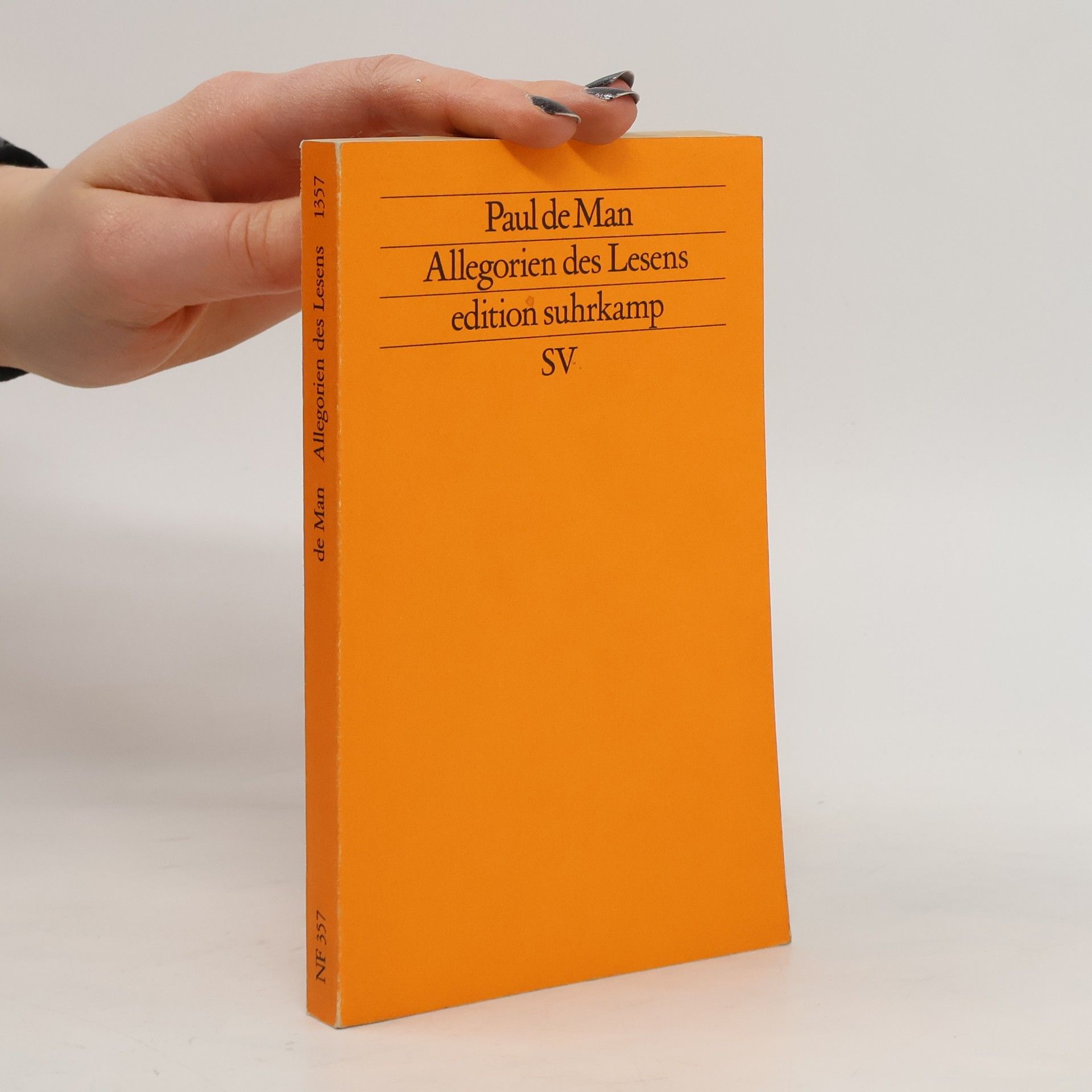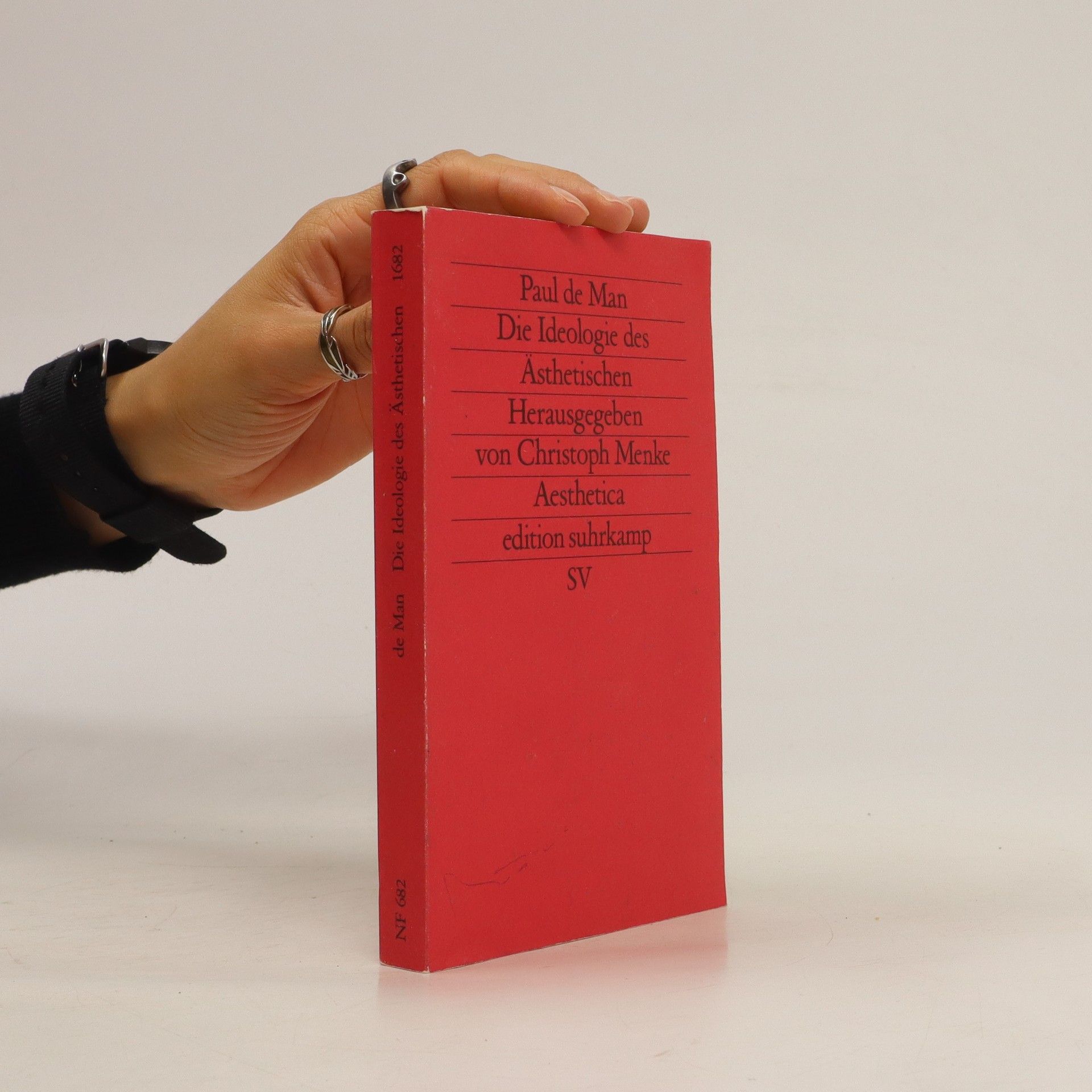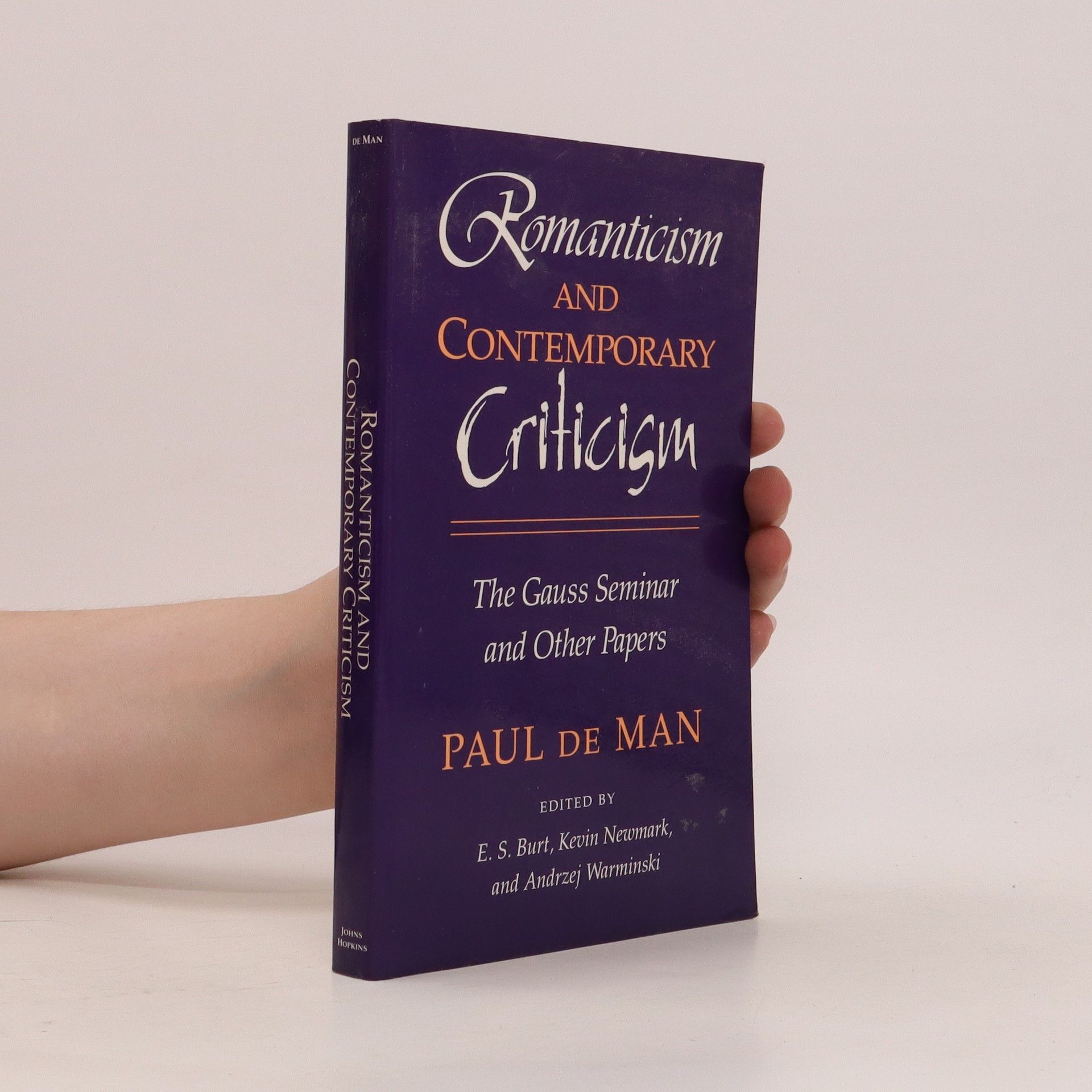Als historische Studie begonnen, stellt diese brisante Auseinandersetzung mit Rousseau nicht zuletzt eine Theorie des Lesens dar. Erstmals auf Deutsch öffnen die Rousseau-Aufsätze einen scharfsinnigen neuen Zugang zu Rousseau und zu de Mans eigenem Denken. Im Nachwort stellt Gerhard Poppenberg Paul de Mans Reflexionen in den Kontext der Freundschaft zu dem Philosophen Jacques Derrida und beider wirkungsmächtiger Auseinandersetzung mit Rousseau.
Paul de Man Book order (chronological)
Paul de Man was a Belgian-born literary critic and theorist of deconstruction. His work focused on challenging traditional interpretations and revealing the inherent contradictions within literary texts. De Man's influence on literary theory is significant, though his legacy has been complicated by revelations about his wartime activities. He was a central figure of the so-called Yale School of deconstruction and shaped the work of many subsequent scholars.






Die Ideologie des Ästhetischen
- 300 pages
- 11 hours of reading
Als Paul de Man 1983 starb, war er der wohl bekannteste und einflußreichste Vertreter einer Richtung der Literaturkritik und ihrer Theore, die allgemein als »dekonstruktiv« bezeichnet wird. Kennzeichnend für diese Richtung ist eine erneute Konzentration auf die innere Verfaßtheit der literarischen Texte. Eine erste Auswahl dieser methodisch vorbildlich wie brillant geschriebenen Texte ist 1988 unter dem Titel Allegorien des Lesens in der edition suhrkamp erschienen. Die vorliegende Auswahl konzentriert sich auf die methodologischen und theoretischen Prämissen dieses Vorhabens, wie sie die Abhandlungen über die Zeitlichkeit der Literatur, über Shelley und über die Autobiographie deutlich machen. Sich auf die immanente Verfaßtheit und Bewegung von Texten einzulassen ist nach de Man kein selbstzweckhaftes, folgenloses Unternehmen. De Man beansprucht vielmehr für seine »Rückkehr zur Philologie« eine allgemeine Bedeutung; die Literaturkritik ist zugleich philosophische und politische Kritik. Damit ist der zweite Schwerpunkt dieser Auswahl bezeichnet. De Man erläutert diese These zum einen in kritischer Auseinandersetzung mit der Philosophie Jacques Derridas. Zum anderen zeigt er an zentralen Texten der ästhetischen Tradition, an Kant und Hegel, daß ihr falsches – »ideologisches« – Verständnis literarischer Texte unter der Kategorie des »Ästhetischen« ebenso weitreichende philosophische wie politische Konsequenzen hat.
Romanticism and Contemporary Criticism
- 224 pages
- 8 hours of reading
This volume assembles for the first time material written by Paul de Man between 1954 and 1981, including his previously unpublished Gauss Seminar lectures delivered at Princeton in 1967, three papers on romantic and postromantic issues, a commissioned essay on Roland Barthes, and two substantial responses to papers by Frank Kermode and Murray Krieger. Romanticism and Contemporary Criticism represents de Man's reflections on some of the major texts of English, German, and French Romanticism and their reception in twentieth-century literary criticism and theory. The Gauss Seminar lectures in particular convey de Man's consideration of Romanticism as a distinct form of historical consciousness, and illuminate his conviction that this romantic historical consciousness had been a powerful influence on our own development of a historical identity. De Man had planned to use the Gauss lectures as a basis for a major historical study of Romanticism, but the volume was never completed and de Man eventually abandoned the project. Drawn from four decades of de Man's career, these essays reflect the transition in the critic's work from the thematics and vocabulary of "consciousness" and "temporality" characteristic of his work in the 1960s, to the language-oriented concerns and terminology of his later writings.
Allegorien des Lesens
- 232 pages
- 9 hours of reading
Im Falle Paul de Mans ist die begriffliche Charakterisierung seines Vorgehens zusätzlich erschwert dadurch, daß die Theorie nie losgelöst von den Texten, an denen sie gewonnen wird, betrachtet werden kann.
First published in 1983. Routledge is an imprint of Taylor & Francis, an informa company.
Through eleavorate & elegant close readings of poems by Rilke, Proust, Nietzsches and the major works of Rousseau, de Man concludes that all writing concerns itself with its own activity as language, & language, he says, is always unreliable, slippery, impossible...Literary narrative, because it must rely on language, tells the story of its own inability to tell a story.... De Man demonstrates, beautifully & convincingly, that language turns back on itself, that rhetoric is untrustworthy. -- Amazon.com